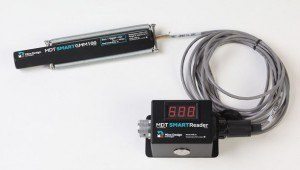 Ground movement is one of the most significant threats to the safety and continued operations of underground mines, as it can lead to rock falls, tunnel collapses and other catastrophic events.
Ground movement is one of the most significant threats to the safety and continued operations of underground mines, as it can lead to rock falls, tunnel collapses and other catastrophic events.
In order to reduce these risks, geotechnical engineers constantly monitor ground movement within mines, using instruments like contractometers and extensometers.
Smart cable bolts are an interesting, and fairly recent, development within the world of geotechnical instrumentation. Essentially a miniature electronic extensometer fitted inside a regular cable bolt, this device both contributes to a mine’s ground support program while simultaneously allowing for easy monitoring of ground movement within underground mines.
Technological advances, especially in the area of connectivity, are having a marked impact on many industries, including mining. Many electronic devices are now able to “talk” to each other, making monitoring systems far more efficient and convenient to use.
For example; smart cable bolts, extensometers and other geotechnical and hydrological devices can be connected to a sensor network, allowing them to be monitored remotely. This means that geotechnical engineers and hydrologists can keep tabs on ground movement and water levels from the comfort and safety of their offices, instead of having to go to the actual instrument to obtain readings.
This saves a huge amount of time, and an engineer making use of a good sensor network can efficiently monitor far more instruments than he would be able to by relying on more manual, traditional means.
As the mining industry continues to develop, it makes sense that more and more use will be made of high-tech solutions – especially by forward-thinking operators of underground mines that see the efficiency and safety benefits of new types of geotechnical instrumentation.

